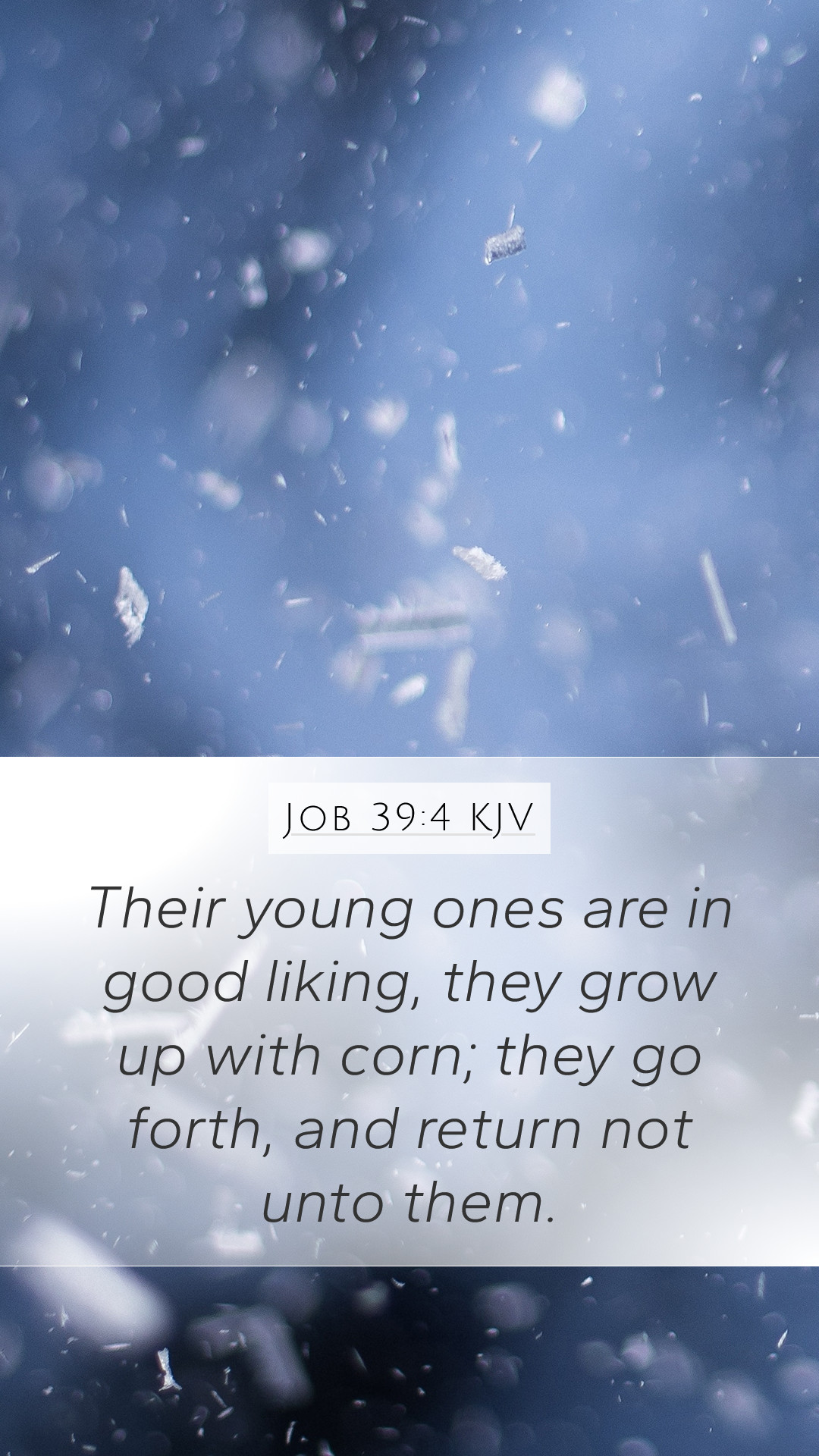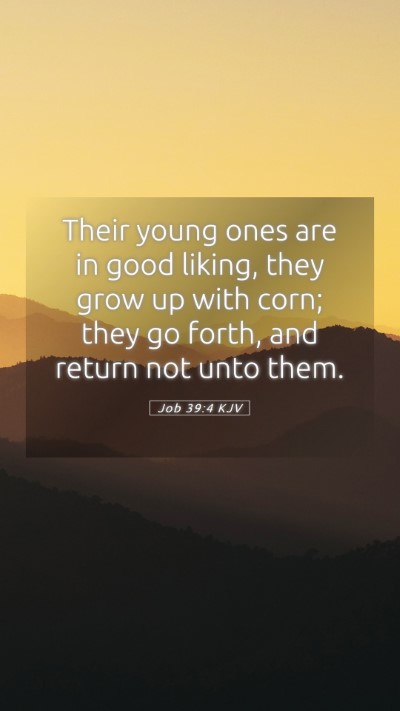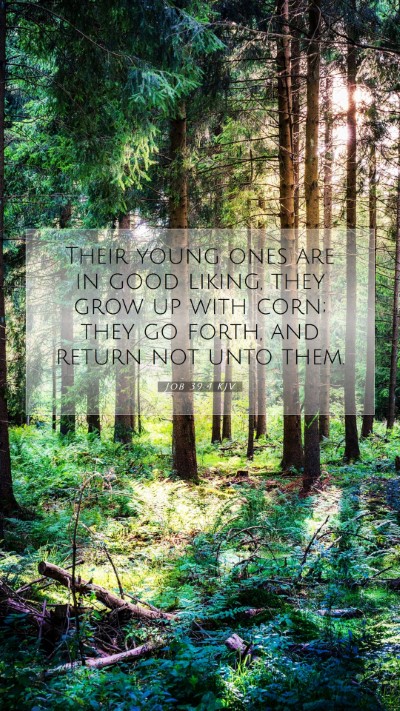Old Testament
Genesis Exodus Leviticus Numbers Deuteronomy Joshua Judges Ruth 1 Samuel 2 Samuel 1 Kings 2 Kings 1 Chronicles 2 Chronicles Ezra Nehemiah Esther Job Psalms Proverbs Ecclesiastes Song of Solomon Isaiah Jeremiah Lamentations Ezekiel Daniel Hosea Joel Amos Obadiah Jonah Micah Nahum Habakkuk Zephaniah Haggai Zechariah MalachiJob 39:4 Meaning
What is the meaning of Job 39:4?
Their young ones are in good liking, they grow up with corn; they go forth, and return not unto them.
Job 39:4 Bible Verse Meaning
Understanding Job 39:4
Job 39:4 states: "Their young ones are in good liking, they grow up with corn; they go forth, and return not unto them." This verse invites profound reflections on the themes of nature, divine purpose, and the intricacies of creation.
Bible Verse Meanings
This verse presents a vivid image of the young of wild animals, likely the unicorns or wild oxen referenced in the earlier verses of Job. It reflects on their ability to thrive in the natural world without human care. Gathered insights from public domain commentaries help elucidate this verse further.
Commentary Insights
- Matthew Henry: He emphasizes that the verse illustrates God’s providence in sustaining creatures in their natural habitats. Their growth and independence symbolize the untrammeled ways of divine order in nature.
- Albert Barnes: Barnes points out that this imagery signifies the contrasting life of the wild animals who thrive on their own, comparing it to God’s care for His creation. It echoes the theme of self-sufficiency and the wonder of God's design of life and instinct.
- Adam Clarke: Clarke notes that the verse highlights the interdependence of creation—where young animals grow strong in their habitats—an expression of the natural cycle and the divine engineering behind life.
Bible Verse Interpretations
Job 39:4 can also be interpreted as a reflection on the broader themes of providence and freedom. This resonates with many readers who seek Bible study insights and deeper Scripture analysis on how God interacts with His creation. The message implies that even in the wild, God's hand is evident, maintaining order and purpose.
Life Application
For individuals attempting to understand how to connect biblical truths with daily life, this verse compels one to appreciate the sanctity of creation and the independence of life, showing that divine oversight exists in all realms.
Historical Context
In a broader context, the Book of Job addresses the nature of suffering and God’s governance of the universe. Job's reflections on the animal kingdom serve as examples of God's intricate management of life, parallel to the questions of suffering that Job himself faces.
Related Bible Verses
- Psalms 104:25-26: This passage emphasizes the majesty of God’s creation, depicting the vast sea and the creatures that dwell within.
- Proverbs 30:29-31: These verses refer to the majesty and great strength of certain animals, paralleling the themes in Job.
- Matthew 10:29: Jesus speaks about how not one sparrow falls without the Father’s notice, underscoring God’s care for His creatures.
Conclusion
The exploration of Job 39:4 through various Bible verse commentaries reveals the beauty of God's creation, the intricacies of animal life, and invites readers to appreciate both the natural order and the spiritual truths underlying it. For those engaged in Bible study groups or online Bible study, this verse serves as a reminder of the divine presence in the midst of nature's wonder.
Additional Study Resources
For those looking to delve deeper into the themes explored in this verse, consider utilizing Bible study tools and Bible study guides that focus on the literary structure of Job or the nature of creation. Bible study lessons centered on creation, divine purpose, and providence can further enhance understanding.


